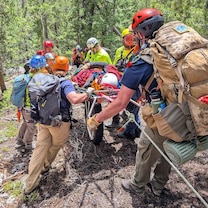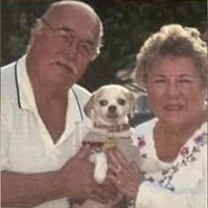Choking Death Linked to Gastric Bypass Surgery
A U.K. woman choked on food that wouldn't fit into her stomach, docs say.
June 14, 2012— -- A U.K. woman died choking on food that wouldn't fit in her stomach after weight-loss surgery, according to an inquest into her death. But experts say gastric bypass patients are no more likely to choke than someone who didn't undergo the surgery.
The inquest into the December 2011 death of Dianne Bernadette Cooper-Clarke concluded the 64-year-old mother suffocated because of a backlog of food outside her stomach, which had been surgically shrunken to the size of a thumb, according to the Daily Mail.
"The tube that goes from the mouth to the stomach was swollen and food had built up all the way to the throat," Dr. Hugh Jones, the Royal Cornwall Hospital pathologist who performed the autopsy, told the inquest, according to the U.K.'s Daily Mail. "Your esophagus is the size of a little finger, but hers was as big as her stomach. ... I considered the food had blocked off her breathing, and that was the cause of death."
Calls by ABC News to Jones were not immediately returned.
Cooper-Clarke had gastric bypass surgery in March 2010, the Daily Mail reported. The procedure uses staples to shrink the stomach so patients eat less food and absorb fewer calories. Patients are warned that overeating can lead to complications.
"After surgery, correct behavior should be measuring food, eating small amounts several times a day and not eating to the point where you're too full or throwing up," said Dr. Mitchell Roslin, a bariatric surgeon at Lenox Hill Hospital in New York. "It takes a long time for the esophagus to dilate out like that, and you'd be symptomatic long before that happened."
Symptoms like bad breath, vomiting and regurgitating food can signal a digestive obstruction, a risk associated with bariatric surgery, according to Roslin, who has no firsthand knowledge of Cooper-Clarke's medical history. But choking would mean aspirating food into the windpipe and being unable to cough it out -- a rare event that could also happen to someone who didn't have bariatric surgery.
"People who can't protect their airways are usually in some sort of altered state," said Roslin, adding that aspiration is often a consequence of alcohol use. "Choking is not a realistic fear for bariatric surgery patients. This just demonstrates that crazy things can happen to anyone."
In the U.S., bariatric surgery is a last resort for people who have tried and failed to lose weight by other means. And while any surgical procedure carries risks, the benefits of bariatric surgery can be life changing, Roslin said.
"I've seen people on 20 medications come off them; people come out of wheelchairs able to live productive and active lives; people on transplant lists now working full time, just from the massive weight loss," he said. "It really can change lives. But the surgery is just a tool to help people be less hungry and make better choices. It's by no means a fool-proof solution."
The inquest concluded Cooper-Clarke's gastric bypass surgery was carried out properly, and that her behavior after the procedure is what led to her death.
"People do not stick to [eating less] and this is tragically what happens," said deputy coroner Andrew Cox, the Daily Mail reported. "This is not a natural cause of death. It is not an accident because she chose to eat. She died of a known complication of an elective surgical procedure of a gastric bypass."




